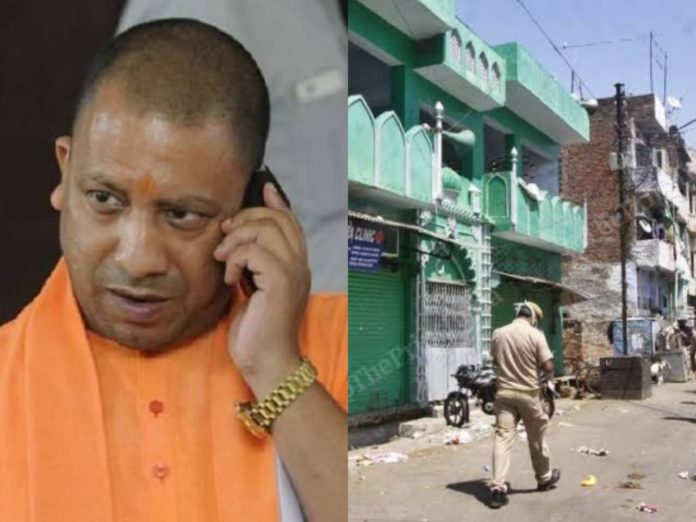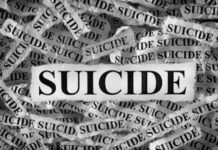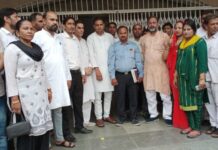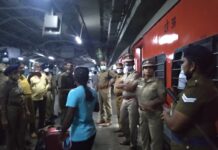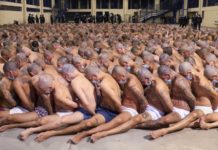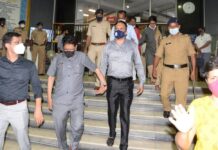Even as the Indian government is receiving flak from Gulf countries for the inability to control the climate of hate that propagates Islamophobia, another incident of religious profiling has come to light from Lucknow, Uttar Pradesh.
The Uttar Pradesh administration has named COVID-19 hotspots in Lucknow after the mosques in the areas.
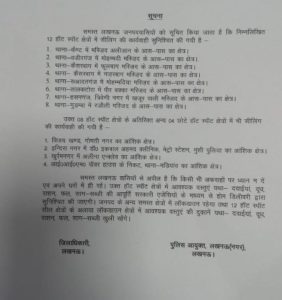
One of the hotspots in Lucknow’s Sadar Bazar is called ‘Masjid Ali Jaan and nearby areas’. Similarly, some others mentioned in the list of Covid-19 hotspots are ‘Mohammadiya Masjid and nearby areas’ in Wazirganj, ‘Khajoor Wali Masjid and adjoining areas’ in Triveni Nagar and ‘Phool Bagh/Nazarbagh Masjid and adjoining areas’.
The residents of the area and members of opposition parties have raised objections to this nomenclature saying that the UP administration is trying to give communal color to the disease.
According to UP Congress chief Ajay Kumar Lallu, the state government has been unable to contain the spread of coronavirus and is rather interested in diverting attention by linking the issue with religion. He also added that it is discriminatory to link the illness to one particular community.
Saying that the practice of naming hotspots after mosques were being followed only in Uttar Pradesh, Lucknow-based law professor Abdul Hafiz Gandhi adds further- “This is a wrong practice as you are blaming one particular community by naming hotspots after mosques. Are we naming hotspots after any other religious institution? Hotspots are named after areas and this is what is being followed across the country.”
In a report by The Print, a resident living in one of the hotspots said, “This is nothing but an attempt to create an impression that Muslims are behind the spread of Covid-19. Even today Tablighi Jamaat is shown as the major reason behind the surge in cases. The areas that have been labeled as hotspots include both Muslim and Hindu communities. When areas are not being named after temples or churches, why are they being named after mosques?”
"This is a wrong practice as you are blaming one particular community by naming hotspots after mosques. Are we naming hotspots after any other religious institution? Hotspots are named after areas and this is what is being followed across the country" https://t.co/aOfDyMlwNH
— Abdul Hafiz Gandhi (अब्दुल हफीज़ गाँधी ) (@hafizgandhi) May 2, 2020
Meanwhile, the administration has denied these claims and stated that the mosques were only named due to the presence of positive cases. As of now, Lucknow has reported 214 Covid cases with 8 new positive cases on Friday.
Since the Nizamuddin Conference incident, there was a flood of fake news not just from social media but from mainstream news channels targetting the Muslim community and blaming them for the spread fo coronavirus.
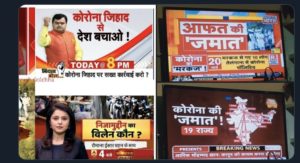
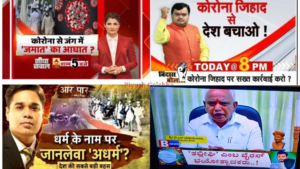
Many news channels ran with headlines like ‘Corona Bomb’ and ‘Corona Jihad’. This was further fueled by the Hindutva brigade on social media and many of BJP leaders.
Instead of controlling the hate-filled environment, the Indian government and health departments aided this process by giving daily updates of only cases from the Tablighi jamaat event. All this happened while the migrants were forced to walk hundreds of miles to their homes and doctors were demanding proper protective equipment. Instead of arranging transport and providing better health infrastructure, the government abetted the rise of the hate-filled environment in the country.
When faced with failures, the BJP led government has time and again tried to communalise the Pandemic.

















